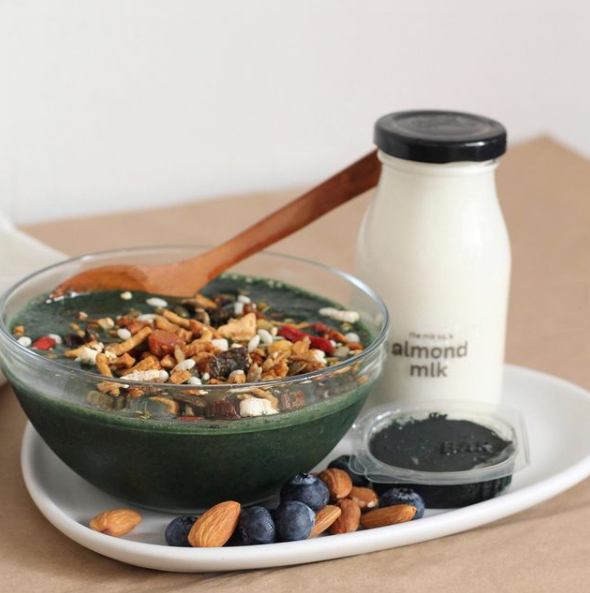
What is the Best Time to Take Spirulina: Morning or Night?
Spirulina is a blue-green algae renowned for its numerous health benefits, including boosting immunity, improving digestion, and providing essential nutrients like protein, vitamins, and minerals. However, to maximize its benefits, understanding the best time to take Spirulina is crucial. This guide explores whether Spirulina is best taken in the morning or at night, supported by scientific facts, common FAQs, and a summary table to help you make an informed decision.
Morning vs. Night: When is the Best Time to Take Spirulina?
1. Morning - Start Your Day with a Nutritional Boost
Many health experts suggest that the morning is an ideal time to take Spirulina for several reasons:
- Energy Boost: Spirulina contains a high concentration of protein, B vitamins, and iron, all of which support energy production. Taking Spirulina in the morning can give you a natural boost to start your day without relying on stimulants like coffee.
- Metabolism Support: Spirulina’s rich content of antioxidants and nutrients can help stimulate the metabolism, supporting weight management and improved digestion throughout the day.
- Improved Focus: The amino acid L-tyrosine found in Spirulina helps improve cognitive function. Taking it in the morning may enhance focus, mental clarity, and overall productivity during the day.
- Detoxification: Spirulina’s ability to detoxify heavy metals and toxins from the body makes it a great addition to your morning routine. Consuming it early can help your body flush out harmful substances throughout the day.
Ideal for:
- People looking for an energy boost in the morning
- Those who want to enhance their metabolism and mental focus during the day
2. Night - Relaxation and Repair
On the other hand, some prefer taking Spirulina in the evening for specific reasons:
- Muscle Repair and Recovery: Spirulina’s rich amino acid profile supports muscle repair. Taking it at night after a workout allows your body to repair and build muscle as you sleep.
- Sleep Enhancement: While Spirulina is energizing, it is not a stimulant. The high levels of magnesium and tryptophan in Spirulina promote relaxation and improve sleep quality by regulating melatonin production.
- Nutrient Absorption: Consuming Spirulina at night may enhance the body’s ability to absorb nutrients while it rests. Sleep is a time for cellular repair and regeneration, and the nutrient profile of Spirulina supports this process.
Ideal for:
- Athletes or people involved in strenuous physical activity
- Individuals seeking better sleep quality and nighttime relaxation
Factors to Consider for Optimal Timing
The best time to take Spirulina depends on several factors such as lifestyle, health goals, and individual preferences:
- Energy Needs: If you require more energy during the day, taking Spirulina in the morning is recommended. Conversely, if your focus is on recovery and relaxation, nighttime consumption may be more suitable.
- Workout Routine: People who exercise regularly may benefit from taking Spirulina both before and after workouts. A pre-workout dose provides energy, while a post-workout dose helps with muscle recovery and regeneration.
- Digestive Comfort: Some individuals may find that taking Spirulina on an empty stomach leads to mild digestive discomfort. In such cases, it's better to take it after meals, either in the morning or at night.
- Form of Spirulina: Spirulina comes in various forms such as powder, capsules, or tablets. The form can influence when you take it. For instance, mixing Spirulina powder into a smoothie or juice might make it more suited for morning consumption, while capsules could be easier to take at night.
How Much Spirulina Should You Take?
For most people, the recommended daily dose of Spirulina ranges from 1 to 3 grams. However, this can vary depending on specific health goals:
- General health maintenance: 1-3 grams per day
- For boosting immune function or muscle recovery: 4-6 grams per day.
- Athletes or people engaging in intense physical activity: 5-10 grams per day.
Benefits of Spirulina
Regardless of when you choose to take Spirulina, the following benefits are typically experienced by most users:
- Rich in Nutrients: Spirulina is packed with vitamins, minerals, proteins, and antioxidants.
- Boosts Immunity: It enhances the immune system by promoting white blood cell production and reducing inflammation.
- Improves Digestive Health: Spirulina aids in maintaining a healthy gut flora and improves digestion.
- Supports Weight Loss: It helps curb appetite by regulating blood sugar levels and promoting satiety.
- Detoxification: Spirulina binds to heavy metals and toxins, facilitating their removal from the body.
- Enhances Physical Performance: It increases endurance and reduces muscle fatigue.
Frequently Asked Questions (FAQs)
1. Can Spirulina be taken on an empty stomach?
Yes, Spirulina can be taken on an empty stomach. Many people prefer taking it in the morning on an empty stomach to maximize its detoxifying effects and enhance nutrient absorption. However, if you experience any digestive discomfort, consider taking it with food.
2. Can I take Spirulina with other supplements?
Yes, Spirulina can be taken with other supplements. It is often paired with chlorella, another type of algae, for enhanced detoxification. However, consult your healthcare provider before combining Spirulina with prescription medications or specific supplements.
3. Can I take Spirulina every day?
Absolutely! Spirulina is safe for daily consumption. Regular intake helps to maintain optimal health, providing a continuous supply of essential nutrients and promoting overall wellness.
4. Does Spirulina cause any side effects?
Spirulina is generally safe for most people. However, some may experience mild side effects such as digestive discomfort or nausea, particularly when starting Spirulina. To avoid these, begin with a small dose and gradually increase.
5. Should I take Spirulina before or after a workout?
You can take Spirulina both before and after workouts. Taking it before exercise provides an energy boost while taking it afterward helps in muscle repair and recovery.
6. How long does it take to see the benefits of Spirulina?
Most people begin to notice the benefits of Spirulina after 1-3 weeks of consistent use. Results may vary depending on the individual’s health condition and the specific goals they are aiming to achieve.
Summary Table: Best Time to Take Spirulina
| Time | Benefits | Best for |
| Morning | - Boosts energy and metabolism - Enhances mental focu - Supports detoxification |
People needing an energy boost and mental clarity |
| Night | - Aids in muscle recovery - Promotes relaxation and sleep - Enhances nutrient absorption |
Athletes, people focusing on recovery and sleep |
| Before Workout | - Provides an energy boost - Increases endurance |
Individuals needing an energy boost before exercise |
| After Workout | -Supports muscle repair - Reduces muscle soreness and fatigue |
Athletes and physically active individuals |
Conclusion
The best time to take Spirulina depends on your health goals and personal lifestyle. Taking it in the morning can provide energy, improve focus, and support detoxification, while nighttime consumption enhances muscle recovery and sleep quality. Regardless of when you choose to take Spirulina, its impressive nutrient profile and health benefits will contribute to your overall well-being.
If you are new to Spirulina, start with a small dose, monitor how your body responds, and adjust the timing based on your preferences. Whether you opt for morning or night, consistency is key to reaping the full benefits of this superfood.


